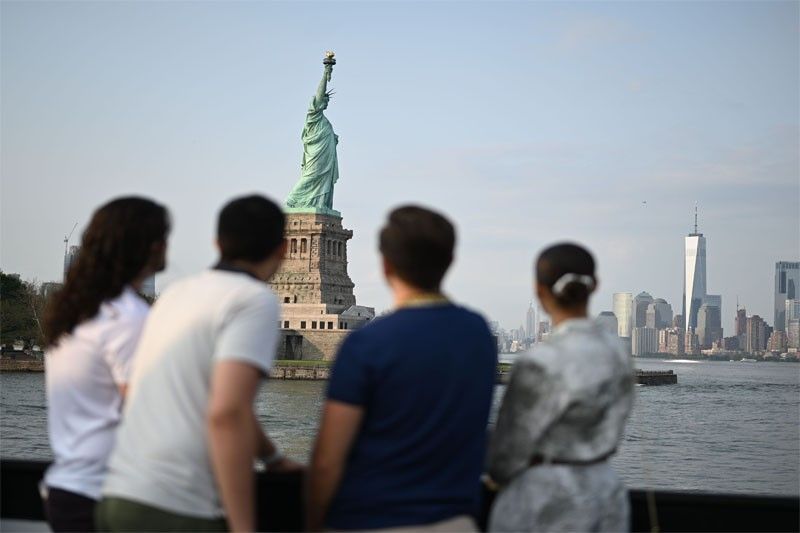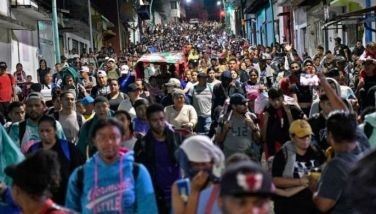China warns its citizens of police harassment, crime in US

BEIJING, China — China on Tuesday issued a pair of travel alerts to its citizens going to the United States, warning them of police harassment and crime as tensions soar between the global powers.
The world's two largest economies have been locked in a protracted trade war, and any major drop in Chinese tourism to the United States could cost billions to the US economy.
While it did not threaten to curb tours to the United States, China has used tourism as a weapon during previous diplomatic rows with South Korea, Japan and the Philippines.
Tuesday's warnings were issued as China also angrily hit back at US criticism of its human rights record on the 30th anniversary of the brutal crackdown on the Tiananmen protests, adding to tensions.
The foreign ministry said US law enforcement agencies have "repeatedly" used methods such as immigration and on-site interviews to "harass" Chinese citizens in the US.
It urged Chinese nationals and Chinese-funded institutions in the US to be cautious and "increase awareness and strengthen preventive measures".
"This is a response to the circumstances, China would not have done this if it was unnecessary," foreign ministry spokesman Geng Shuang said at a regular press briefing.
"At the same time, I want to emphasise China holds an open attitude towards normal people-to-people exchanges and contacts between our two countries, but such exchanges and contact must be based on mutual respect."
US warns its citizens
A separate travel warning by China's culture and tourism ministry warned: "Recently, shootings, robberies and thefts have occurred frequently in the United States."
It urged Chinese tourists to "fully assess the risk" and "improve their awareness of safety and security".
Three million Chinese visited the United States last year, down from 3.2 million in 2017, according to the US National Travel and Tourism Office. They represent the fifth-largest group of foreign visitors, spending $36.4 billion last year.
This is the second travel advisory for the US issued by China over the past 12 months.
The Chinese embassy in Washington last July warned Chinese tourists to be aware of issues including the threat of public shootings and robberies, searches and seizures by customs agents, telecommunications fraud and natural disasters.
The latest warnings come a day after the education ministry said Chinese students and academics were facing US visa problems and urged them to assess the "risk" of travelling to the United States.
For its part, the United States warned its own citizens earlier this year that they could face arbitrary action by authorities when they visit China, including sudden prohibitions on exiting the country and harassment of citizens of Chinese heritage.
China's own visa process is onerous, especially for journalists, with some reporting delays and difficulties in getting or renewing visas.
Trade war
Ties between China and the United States have deteriorated after trade negotiations stalled last month without a deal to lift bruising tariffs on goods worth $360 billion in two-way trade.
Instead, the two sides hiked punitive tariffs, Washington blacklisted Chinese telecom giant Huawei and Beijing said it would create its own list of "unreliable" companies and individuals.
US businesses in China have complained about delays in customs clearances and other non-tariff retaliation after the trade war reignited.
Chinese state media have also dangled the threat of cutting exports of rare earth minerals to the United States -- a key resource used in the production of everything from smartphones to military hardware.
The travel warnings are a sign that trade frictions were spilling over to other areas and affecting social and cultural exchanges, said Zhu Feng, head of the Institute of International Relations at Nanjing University.
"It is impossible for the Chinese government to reduce the number of people travelling and studying in the United States, because Sino-US people-to-people and cultural exchanges are market-driven," he added.
"The government can't reduce them by administrative means, that's impossible."
- Latest
- Trending
































